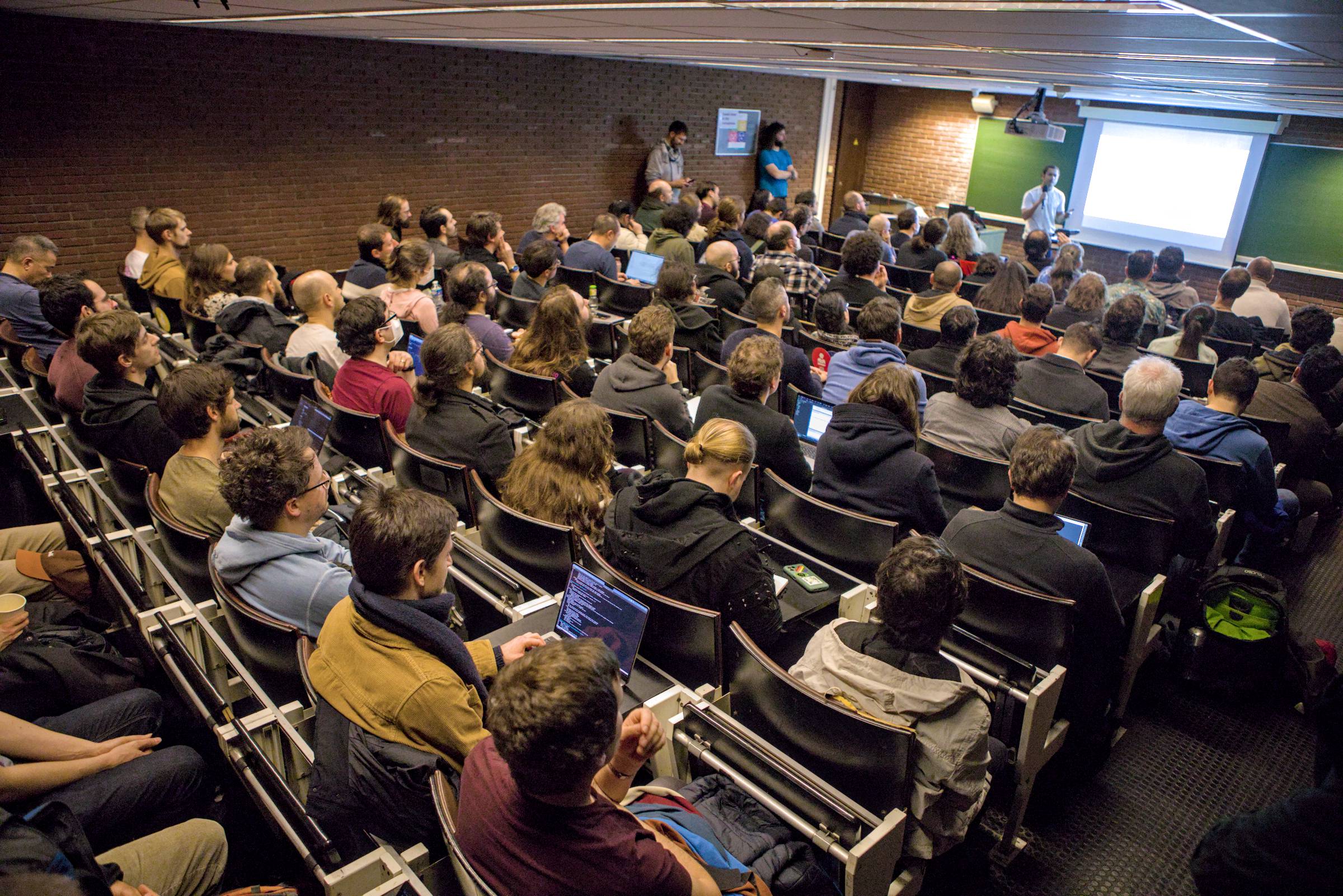LF Energy Gathered at FOSDEM 2024 to Expand the Open Source Energy Ecosystem
LF Energy members and project contributors gathered in Brussels this past weekend for FOSDEM 2024. FOSDEM is a free event held annually in Brussels that gathers thousands of individuals from across open source communities to come together to learn, share, and collaborate to help drive their projects and the open source movement forward.
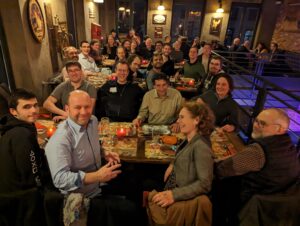
LF Energy community members enjoying dinner (photo credit: Dan Brown)
We started off with a casual dinner on Friday night before the official kickoff of FOSDEM to enable folks to get to know one another ahead of the event. Nearly 30 community members and friends joined us for traditional Belgian food and beer in the heart of Brussels.
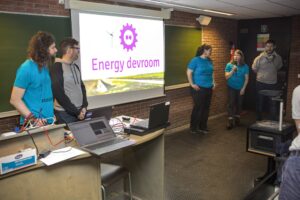
Devroom managers introducing the agenda for the day (photo credit: Nico Rikken)
Members of the LF Energy community from Alliander, RTE, Open Climate Fix, PIONIX, and Seita volunteered as managers of the Energy Devroom, which took place on Saturday, 3 February. The Devroom featured 20+ presentations covering open source projects from across the energy sector. The full list of sessions can be viewed here; click on each individual session to access the video recording.
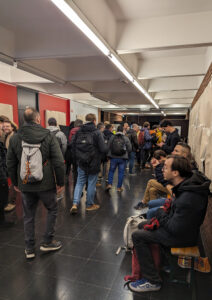
FOSDEM attendees lined up outside the Energy Devroom (photo credit: Anna-Lina Helsen)
Topics ranged from energy management systems to EV charging, smart grids, substation digitalization, and more. The room was full or over capacity for nearly every session, and many sessions had lines down the hallway full of attendees who could not get in. The Devroom managers will request a larger room for 2025 to try to enable anyone who wants to attend these sessions to do so.
New contacts were made, collaborations advanced, and ideas shared around how open source can accelerate the energy transition thanks to this event. A summary of only a few of the extremely valuable sessions follows below. In the coming weeks, LF Energy will post more detailed summaries of each session presented at the event.
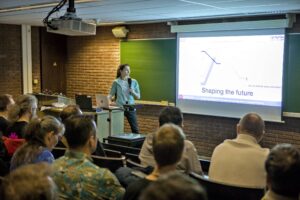
Ekaterina Fedotova discusses the PyPSA-Earth project (photo credit: Nico Rikken)
One fascinating presentation featured Ekaterina Fedotova discussing the modelling framework PyPSA-Earth. The framework may be utilized to build a ready-to-use regional power system model by extracting all the required data in a workflow. This type of modeling tool is helping to make the energy transition more cost effective. In fact, Fedotova explained how PyPSA-Earth is capable of building a power system model for any country in the world with a single line of code.
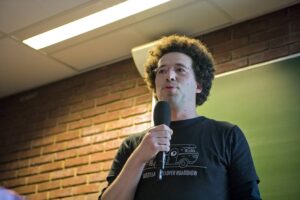
Florian Quèze presents in the Energy Devroom (photo credit: Nico Rikken)
One particularly fun presentation came from Florian Quèze of Mozilla who explained how he used Firefox Profiler to power profile his entire house, leading to some surprising insights about what uses the most power and when. This knowledge can help optimize power usage at a household level, which in the long run can have measurable impacts on individual carbon footprints that add up to big savings when aggregated.
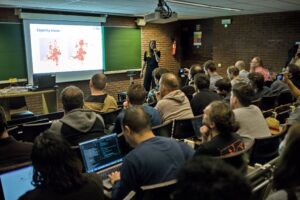
Jonita Ruiter presents the LF Energy OpenSTEF project in the Energy Devroom (photo credit: Nico Rikken)
LF Energy projects were well represented in the Energy Devroom. One example is OpenSTEF, which can forecast the load on a grid over next hours to days, which is essential for anticipating local congestion and making the most of existing assets. Projects like OpenSTEF are helping extend the time available for power grid operators to expand their grids to account for increase power usage as cars and other appliances increasingly are electrified. Jonita Ruiter of Alliander provided attendees with an overview of the implementation of OpenSTEF to fully automatically forecast the load on the grid at the Dutch Distributed System Operator.
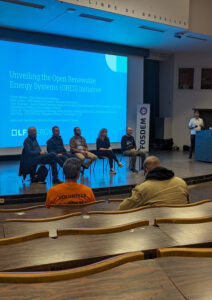
Members of the proposed Open Renewable Energy Systems (ORES) working group present in the main track at FOSDEM (photo credit: Anna-Lina Helsen)
The open source energy community also had the chance to present outside of the Energy Devroom. On Sunday, 4 February, LF Energy’s Dan Brown moderated a panel made up of the founders of a proposed working group that intends to develop an open source tech stack that enables deployment and management of renewable energy systems down to a household level, which could be used in off-grid settings, standalone, or connected to a decentralized mini or standard grid with bidirectional energy transmission capabilities. This is a major undertaking and will require the creation of a large community and multiple new projects to support these goals. The audience in the main FOSDEM track was extremely interested in the proposal, with too many questions from the audience to address in the limited time allotted to the panel.
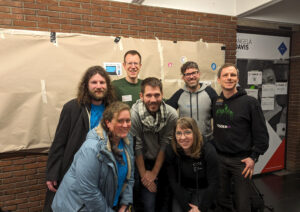
The Energy Devroom managers Kai-Uwe Hermann, Nico Rikken, Dan Brown, Nicolas Höning, Anna-Lina Helsen, Boris Dolley, and Rachel Tipton (photo credit: Anna-Lina Helsen)
LF Energy extends our thanks to the entire open source energy community, and especially our Energy Devroom managers and speakers, for making FOSDEM 2024 a huge success! We hope that if you met our community at FOSDEM or if you took away useful information from the session recordings that you will consider getting involved and helping us build the open source tech stack needed to decarbonize power systems at all levels.
